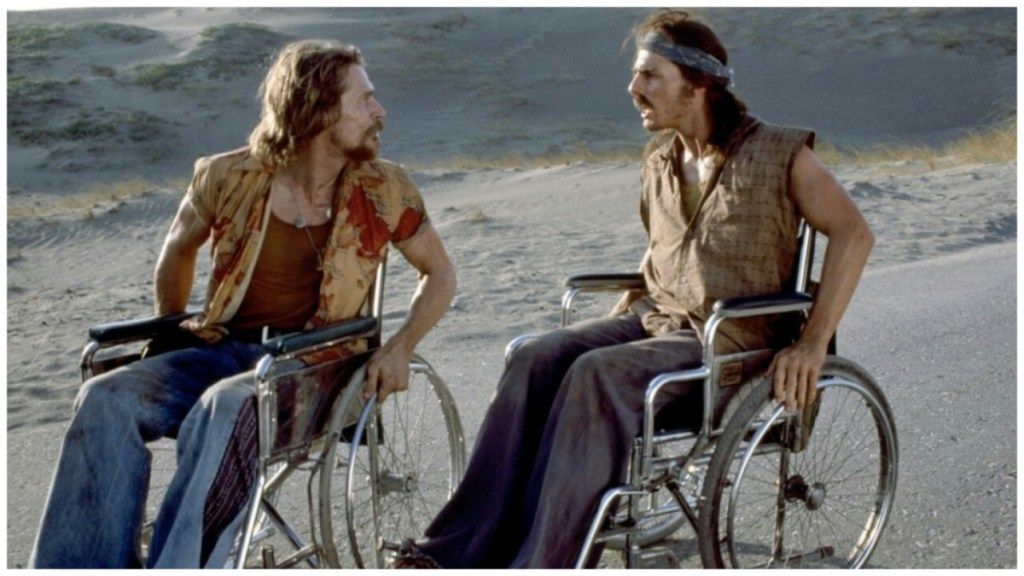For many actors, the pivot to Oscar-bait “serious movies” after making lots of money from more lightweight fare is a well-worn cliché. But as Roger Ebert wrote in 1989, “nothing [Tom] Cruise has done will prepare you for what he does in Born on the Fourth of July… his performance is so good that the movie lives through it”.
In Born on the Fourth July, which is now streaming on Netflix, Cruise plays Ron Kovic, who fought in Vietnam and came home paralyzed from the waist down. The film is based on his memoir, and it’s directed by another veteran, Oliver Stone. What emerges is a powerful, visceral and haunting story about what happens when young men go to war – and what happens to them when they come home.
War is hell
As Ebert explains, both Kovic and Stone were “gung-ho patriots who were eager to answer their country’s call to arms”. And despite everything they experienced, they returned from Vietnam as patriots – patriots who were offended and angered by the hostility they experienced from the anti-war movement. But Kovic’s experiences back home were horrendous – and some of them are shown here in excruciating detail – and he began spiralling into self-destruction. The film follows him all the way to rock bottom, and sticks with him as he attempts to climb back up.
It’s an extraordinary, heartbreaking film that’s much smarter and more thoughtful than most war movies. Stone came to this movie after making Platoon, and Born on the Fourth of July is a kind of smarter, more nuanced sequel in its portrayal not just of the horrors of war, but the horrors of post-war life.
Pauline Kael of The New Yorker hated it, but she was in the minority of critics alongside the Washington Post, which said that while it was “an impassioned movie, made with conviction and evangelical verve. It’s also hysterical and overbearing and alienating”.
Variety described Cruise’s performance as “stunning”, and Rolling Stone said that “Stone has found in Cruise the ideal actor to anchor the movie with simplicity and strength”. Time Out called it a “compelling, elegiac film, particularly encouraging after the simplified morality of Platoon“. And for The New York Times, it was “the most ambitious non-documentary film yet made about the entire Vietnam experience”.





